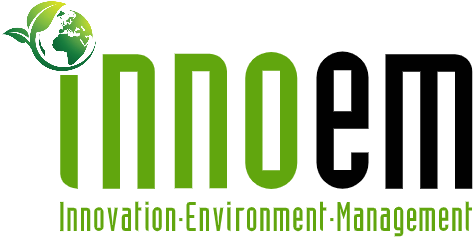Sonya Bhonsle, Global Head of Value Chains & Regional Director Corporations reflects on the current weather trends and why that highlights some key oversights for corporates on their decarbonisation journeys.
As we enter another summer of record-breaking heatwaves and raging wildfires, there is no denying that we are increasingly feeling the deadly effects of climate change. Transitioning to a zero-carbon economy requires urgent, system-wide action.
While some companies are making good progress in understanding and reducing the emissions they generate directly, most are lagging in action on their value chain emissions (commonly known as Scope 3). This lack of ambition can no longer be tolerated. CDP research found that, on average, Scope 3 emissions are 11.4 times higher than operational emissions (known as Scope 1 and 2).
The tip of the iceberg
To truly understand the environmental impact of a company, it is not enough to look at its direct emissions and risks. The entire value chain must be engaged to evaluate and reduce emissions. Addressing Scope 3 emissions is therefore a critical step on the path to net-zero but is still one that is woefully largely neglected by companies.
Failure to address Scope 3 emissions may lead to increased financial risks, with research suggesting major buyers could see a hike of $120bn in costs in the next four years due to environmental risks in their supply chains. Companies that ignore the bulk of their emissions also lose the opportunity to support and influence suppliers all over the world who may not have their own systems, resources or policies in place to reach net-zero.
Last year, only 20% of companies disclosed their supply chain emissions data through CDP (Scope 3, category 1: purchased goods and services) compared to 71% of companies who reported their Scope 1 and 2 emissions.
Picking the low-hanging fruit
CDP data suggests that those who do report on Scope 3 are currently doing the bare minimum. Commonly, companies are measuring and disclosing emissions categories that are easy to calculate, whilst neglecting categories where the bulk of their emissions occur but are more difficult to measure.
A recent technical note from CDP shows that, business travel and employee commuting are popular categories to calculate as part of Scope 3 reporting, but these emissions are negligible for all high-impact sectors, representing a mere 0.1% and 0.2% of total Scope 3 emissions on average, respectively. Companies are continuing to bury their heads in the sand when it comes to taking responsibility for all of their Scope 3 emissions. This must change.
The key to meaningful environmental action
Through CDP’s Supply Chain program, we’ve seen member companies increasingly taking their primary supplier emissions data and build this into their Scope 3 inventories. This allows companies to influence the emissions factors of the goods and services they purchase to reduce their Scope 3 emissions and make progress towards their science-based targets (SBTs) – driving factors in the movement to include more supplier-specific information in climate reporting. A simple example is: if a company works with one of its suppliers to move their energy consumption to 100% renewable energy, then their supplier’s emissions decrease and the company sees that reflected in their scope 3 inventory.
To be clear, this isn’t a silver bullet that will solve Scope 3 emissions in one shot. Supply chains can be complex webs that involve millions of dollars of purchasing, and hundreds, if not thousands, of suppliers and products. Calculating Scope 3 emissions can therefore be a challenging and drawn-out process, with buyers often taking on the role of a carbon personal trainer. However, increased collaboration and supplier requests for data is key to cascading environmental action down the supply chain and driving meaningful environmental action across borders globally.
It’s all or nothing, now or never
Science tells us that to avoid the irreversible tipping point in climate change, we must reach net-zero by 2050. As global mandatory disclosure legislation sets in, and corporate climate targets come under more scrutiny than ever, companies cannot continue to turn a blind eye to the bulk of their emissions and continue to use low-hanging fruit within their Scope 3 activities as a tick-box exercise for supply chain reporting.
By refusing to take responsibility for their Scope 3 emissions, companies are pushing us further towards the most disastrous effects of climate change, including continuing extreme weather events globally. Instead, all companies must act now to take meaningful action now to improve Scope 3 disclosure, engaging with their suppliers to address all Scope 3 categories relevant to their business. The future of people and planet depend on our actions today.
Source:https://www.edie.net/summer-of-heatwaves-highlights-corporates-supply-chain-emissions-failures/

